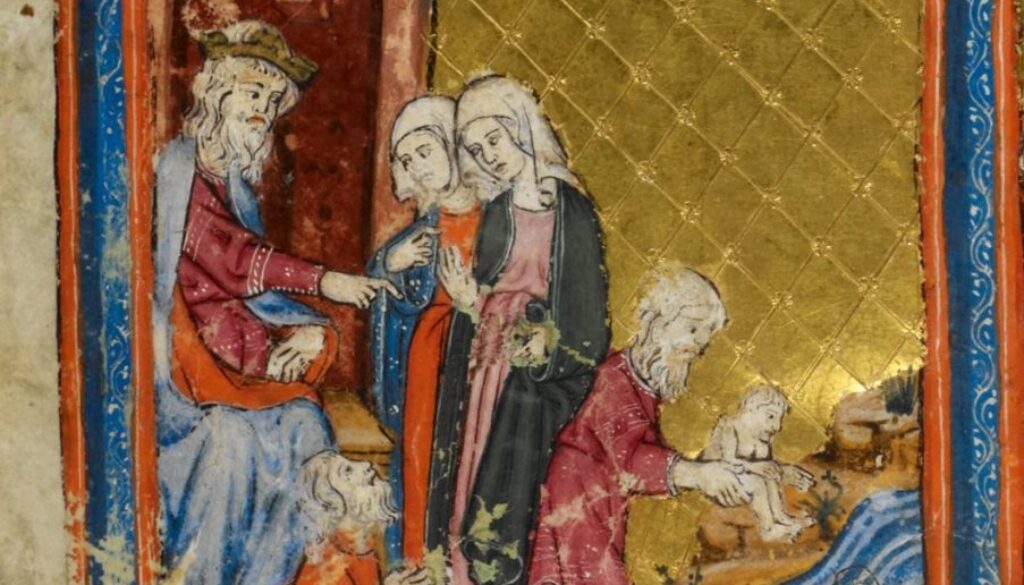And God Built Houses For Them
By Rabbi Esther Hugenholtz
Sermon Shemot 2018
And God Built Houses For Them
It is not uncommon for people to comment on the fact that I’m a woman rabbi, or as some elderly individuals in the United Kingdom would call me: ‘a lady rabbi’. I’m regularly asked about how my womanhood intersects with my rabbinate: did I want to become a rabbi because I’m a woman?
Until recently, my impulse would be to say no; to minimize the gender component of my rabbinate. Wanting to be seen as competent and professional, I would brush off my womanhood being a factor, answering ‘I’m just a rabbi who happens to be a woman.’ I would like to think that being a (cis-gendered) woman had very little to do with my calling. At age fourteen, I trusted my journal with my dream of ‘becoming a theologian’ (I was a weird kid). My interest in God, people, culture, ritual, justice, spirituality and community far outstrip my gender-consciousness.
While I commend myself for my fair-minded attitude, I also see how reductive this approach is. I cannot nor should I erase the social and biological reality of being a woman, especially as a mother. I was the first female rabbi in both pulpits I’ve served. A community’s first-time transition to female clergy leadership is a unique, beautiful and tender time.
I’ve had and breastfed each of my babies while working in the rabbinate. My experiences of sexism cannot be erased. My experience as a mother cannot be erased. My experience of inhabiting a female body cannot be erased. They are part of my rabbinate, whether I like it or not.
At the same time, being a female rabbi has also brought me tremendous blessings. My pastoral relationships have a unique texture and depth. I’ve taught women (and some men) the mitzvah of tefillin – the prayer practice of binding leather straps with boxes of Torah texts upon one’s arm and forehead – and know that I gave them access to a traditionally-male-gendered commandment. I have been privileged to witness women holding a Torah scroll for the first time in their lives. I have been honored to accompany women to the mikveh, the ritual bath. I know how important it is for women (and men) in the community – both young and old – to see a real flesh-and-blood woman on the bimah.
A smart rabbi knows how to separate her vocation from her personal identity.
A wise rabbi knows how to integrate both.
The pressure on female leaders is immense; often, they are exaggerated expectations of what women in all sectors of society face. Social media has amplified our culture’s obsession with youth and physical perfection. We are still objectified.
There are many subtle social codes in our society that restrain and define us. The rods of power still tend to rest in largely male (and white) hands.
In an article shared among my female rabbinic colleagues, titled ‘How Women Manage the Gendered Norms of Leadership’, the Harvard Business Review delineates some of the challenges that female leaders face. From the article:
A wealth of research shows that female leaders, much more than their male counterparts, face the need to be warm and nice (what society traditionally expects from women), as well as competent or tough (what society traditionally expects from men and leaders). The problem is that these qualities are often seen as opposites. This creates a “catch-22” and “double bind” for women leaders.
The article then goes to list a number of real-life experiences that women CEO’s and other leaders have encountered that has complicated or undermined their leadership. This ‘double bind’, according to the authors of the piece, creates ‘four paradoxes’ of female leadership: demanding yet caring, authoritative yet participative, advocating for themselves yet serving others and lastly, maintaining distance yet being approachable. There was a collective sigh of recognition among us women rabbis. The complexity of our leadership is neither unique or is uncommon – whether today or in Biblical times.
This week, we are having a fresh, clean break: we are starting the read Parashat Shemot, the first Torah portion of the Book of Exodus. The narrative is so dense and so rich that the only way to sample it is in small bites. Most of the narrative is driven by men and what men do to other men: Pharaoh and Moses, slave-masters and the enslaved and even the baby boys who fall victim to Pharaoh’s genocidal decree. Yet, in the first chapter, a mere seven verses are dedicated to a unique model of female leadership: the Hebrew midwives. Through their non-violent civil disobedience and clever engineering, they prevent the slaughter of infants. We know very little about these women, except that their names are Shifrah and Pu’ah and that ‘vatirena hameladot et ha’Elohim’ – ‘the midwives feared God’ and did not execute Pharaoh’s decree. We can deduce from the text that they possessed an unshakable moral religious grounding and uncompromising bravery. When confronting Pharaoh, they pull the wool over his eyes in clever ways: they explain their apparent failure to massacre the baby boys due to the fact that ‘Hebrew women are not like Egyptian woman; they are like animals. Before the midwife can come to them, they have given birth.’ (Ex. 1:19) Their moral fortitude is rewarded by God in a generous but mysterious way: ‘Vayas lahem batim’ – ‘God made houses for them.’
Traditionally, this has been interpreted in a benevolent patriarchal way: they merited contracting prestigious marriages.
Rashi, identifying Shifrah and Pu’ah with Miriam and Yochebed, and argues that they were rewarded the Priesthood, the Levite family and Royalty.
This Midrash leaves us feeling unsatisfied as according to this interpretation, Shifrah and Pu’ah were subsumed by the status of their men. I would propose another reading.
A ‘house’ in Biblical parlance doesn’t literally mean a physical structure: it refers to a family unit, and of course, the tradition is correct in picking up on that. But I would argue that Shifrah and Pu’ah, as paradigmatic female leaders established their authority and leadership in their own right. They use the very skills that the Harvard Business Review delineates: they are authoritative, they advocate for themselves and the women in their care, yet they are also approachable, called to serve others and deeply caring. The brilliance of their leadership is that they modulate these qualities in the pursuit of Redemption. They make no apologies for their power and their action is driven by a deep moral vision of concern and accountability. Their house, as echoed in the Book of Joshua (24:15) serves the Eternal.
For all of us who identify as women or who love and support the women of our lives, models of female leadership are crucial. The Prophet Deborah was known as a ‘mother in (or to’) Israel’ – her femininity was not erased by her power.
The women in the Bible brought their whole, authentic selves to their leadership and were unafraid to balance the different roles and identities of being wife, mother, prophet, leader or queen.
As I have journeyed with these deep stories of Judaism, they have transformed me. They have given me a master story, moral clarity and much-needed courage. They have also given me a permission to accept and embrace who I am, as a woman and as a rabbi, and as a woman rabbi. May the courage and wisdom of Shifrah and Pu’ah transform all of our lives. Our lives are made so much richer when we can bring our full selves into the roles we occupy. Our relationships are made so much more real because of it. Only with the flowering of the human soul, can we complete the work of redemption.



